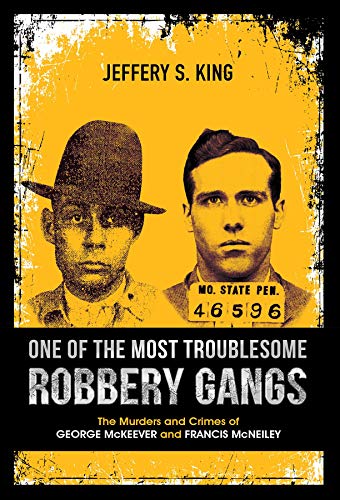Club author tells Book Rap group of challenges in researching book on gangsters of 1930s
Around 1900, the automobile began to replace the horse. That meant the criminals who captured the public imagination also changed, from Wild West outlaws atop animals to fast-moving gangsters robbing stores and banks, rolling away from the crime scenes.
National Press Club member Jeffery King recently published a book on one of those gangs and spoke about it Jan. 13 at a Virtual Book Rap sponsored by the Book & Author Group.

The book, One of the Most Troublesome Robbery Gangs, tells the story of George McKeever and Francis McNeiley, who robbed and killed across the Midwest during the Great Depression.
“By the 1920s, the automobile was dominant and the horse was gone,” King said. The lack of a strong national police force, and the relative lack of numbers and effectiveness of small-town sheriffs and police, gave highly mobile freelance criminals their opening, he added.
King, a retired librarian, has written three previous books on gangsters of this era, including Pretty Boy Floyd and John Dillinger. He told the audience that he'd originally been attracted to writing about Abraham Lincoln, but that field was already quite crowded. He wanted to explore a subject that hadn't been rigorously, systematically researched.
Researching long-ago criminals has its drawbacks, King said. “If you're dealing with recent crime, you have the advantage because you can talk to people involved,” he said. But the lack of live witnesses is offset somewhat by the public availability of FBI records and other documentation on gangsters active decades ago, he said.
Naomi Weiss of the Book & Author Group introduced King at the Virtual Book Rap.
The Book & Author Group strives to help Club members who have published books to hold events to promote their works. For more information, please contact Joe Motheral at [email protected]. The group meets (currently virtually) on the second Tuesday of the month at noon.
